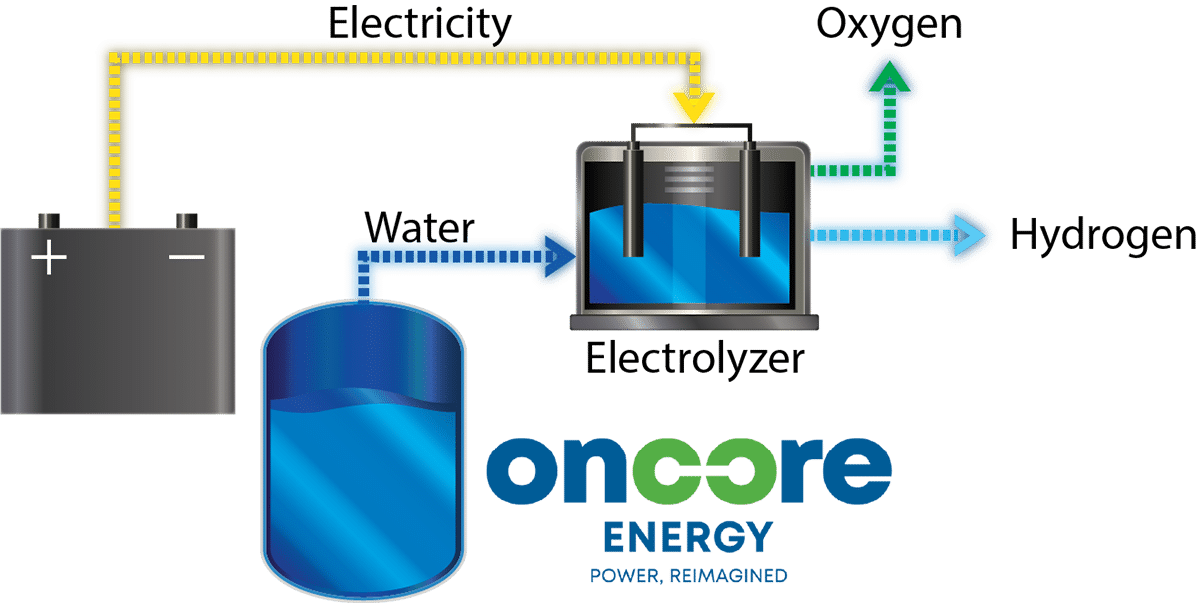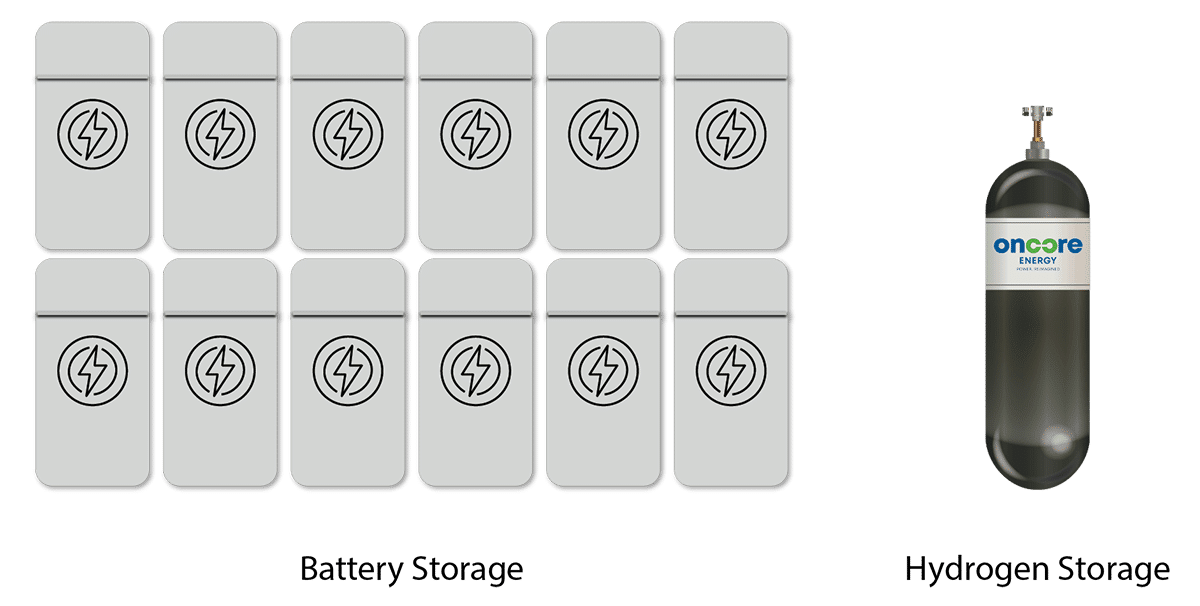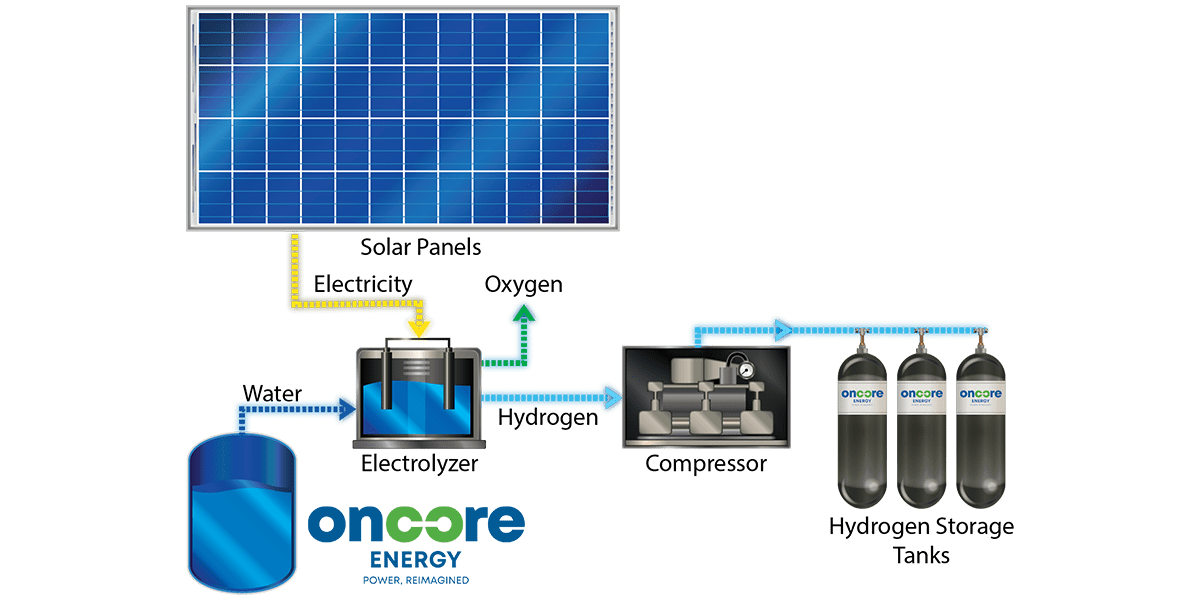Why Hydrogen?
Using hydrogen energy is ethical and responsible.
The Oncore Energy team believes residential, commercial, and government adoption of hydrogen fuel cell technology is the future of renewable energy. The next generation depends on the decisions we make today. We want to invite you to be a part of this vision.

Hydrogen is clean & abundant.
Hydrogen is a naturally occurring element that can be safely manufactured for use in energy production.
Electrolysis is the process of combining water and electricity to produce two elements: oxygen and hydrogen. This hydrogen can be bottled and used in larger microgrid applications. There is no limit to the amount of hydrogen you can produce.
This bottled hydrogen is used as fuel in our Oncore Energy system. There is no combustion, making it 100% safe and clean.

Hydrogen is safe.
A common question we get about hydrogen is: "is it safe?".
Yes, hydrogen is safe. It's actually safer than other forms of liquid or gas energy (like gasoline, propane, diesel, and natural gas). It is safe to both store and use.
Hydrogen is non-toxic.
We take all common safety precautions to ensure proper handling and use of hydrogen.
Why is hydrogen safer than other liquid or gas energy sources?
Hydrogen is safer than all other forms of liquid or gas energy. It is lighter than all other elements, meaning that in the event of a leak, the hydrogen escapes straight into the air and dissipates rapidly.
Fuels like gasoline, diesel, etc. are heavier than air, and they sink. This leads to a dangerous environment where even a spark could cause fires and explosions.
Having a tank of hydrogen near your home is safer than a tank of propane in the yard. According to a statement released by the Department of Energy, "a number of hydrogen's properties make it safer to handle and use than the fuels commonly used today".

Hydrogen stores energy better than batteries.
The traditional way to store power from alternative energy sources (such as solar and wind) is by using lithium-ion batteries. These heavy batteries only last between 3-5 years and must be disposed of through a heavily regulated process. It takes six high-capacity batteries to deliver four hours of energy to a small/midsize home - not nearly enough for the average family. Batteries are very limited, heavy, and expensive relative to the kW capacity.
Hydrogen is stored in pressurized tanks (similar to propane). This is a safe, environmentally friendly process. Hydrogen is stable when stored and does not degrade. The storage tanks used to house the hydrogen can last over 50+ years. A full hydrogen tank can run an average home for 40+ hours without refueling. These tanks can provide unlimited energy storage capacity - the only limit is the amount of tanks on your property!
How do I get a hydrogen tank?
The environment is changing rapidly as hydrogen delivery networks are becoming a reality. Check with your local gas and industrial distributor for information on hydrogen and tank availability.

Hydrogen prevents waste/loss of energy from solar panels.
If you use alternative energy sources like solar panels or windmills - you likely have times when you produce more energy than you actually use. This energy is normally either wasted or given away nearly for free to utility companies.
We created a self-sustaining option to store/capture the extra energy produced by solar panels or windmills in larger applications. This extra energy is converted to hydrogen fuel cells and can be used later. This process is called energy curtailment and is a huge step in reducing waste.
Bottom line: you can store and reuse any extra energy you produce.

